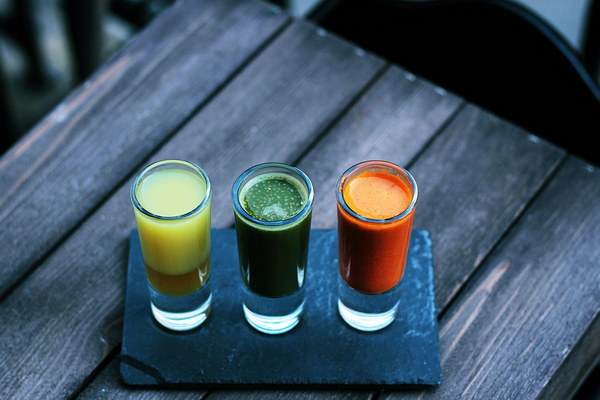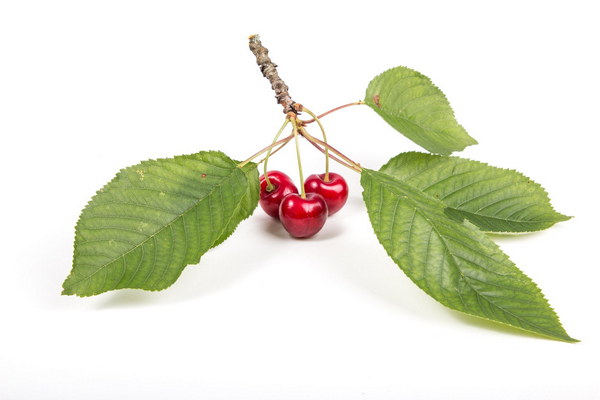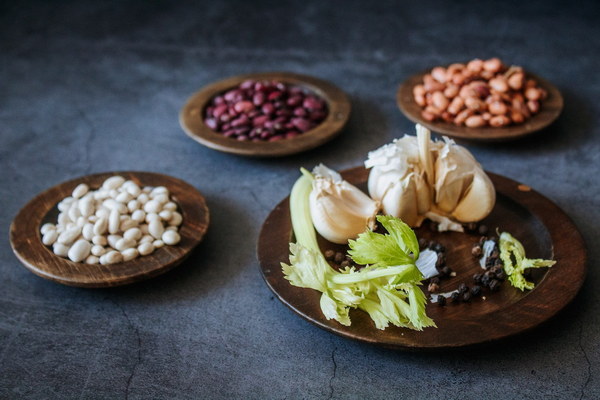Sweet Things Do They Really Nourish the Liver
In the world of nutrition and health, the impact of food on our bodies is often a topic of debate. One particular question that often arises is whether sweet things can actually benefit the liver. This article aims to delve into this topic and explore whether indulging in sweet treats can be a healthy choice for liver care.
The liver is a vital organ that plays a crucial role in filtering blood, metabolizing nutrients, and detoxifying harmful substances. Given its importance, it's no surprise that people are eager to find ways to keep their liver healthy. One popular belief is that sweet things can be beneficial for the liver, but is this really true?
Firstly, it's important to understand that the liver has a unique relationship with sugar. While sugar is a necessary energy source for the body, excessive intake can lead to a range of health issues, including liver disease. The liver is responsible for processing sugar and converting it into energy or storing it as glycogen for later use. However, when we consume more sugar than the liver can handle, it can lead to the accumulation of fat in the liver, a condition known as non-alcoholic fatty liver disease (NAFLD).

So, can sweet things nourish the liver? The answer is not straightforward. While certain sweet things may have some positive effects on liver health, it's crucial to consume them in moderation. Here are some insights into the potential benefits and drawbacks of sweet things for the liver:
1. Natural Sugars: Fruits and vegetables contain natural sugars that are generally considered healthier than added sugars. These natural sugars are accompanied by fiber, vitamins, and minerals that can support liver health. Berries, apples, and oranges are examples of fruits that can be beneficial when consumed in moderation.
2. Honey: Honey is a natural sweetener that has been used for centuries. It contains antioxidants and compounds that may help reduce inflammation in the liver. However, it's still a form of sugar, so it's important to consume it in moderation.
3. Artificial Sweeteners: Artificial sweeteners, such as aspartame and sucralose, are often used as sugar substitutes. While they do not directly contribute to the accumulation of fat in the liver, some research suggests that they may have adverse effects on liver health. More studies are needed to fully understand the long-term impact of artificial sweeteners on the liver.
4. Dark Chocolate: Dark chocolate contains flavonoids, which are plant compounds that have antioxidant and anti-inflammatory properties. These compounds may help protect the liver from oxidative stress and inflammation. However, dark chocolate is still high in calories and fat, so it's essential to consume it in moderation.
It's important to note that the liver is not the only factor to consider when evaluating the impact of sweet things on overall health. The entire dietary pattern plays a significant role in maintaining liver health. Consuming a balanced diet that includes a variety of fruits, vegetables, whole grains, lean proteins, and healthy fats can support liver function and reduce the risk of liver disease.
In conclusion, while some sweet things may have potential benefits for the liver, it's essential to consume them in moderation. The key is to focus on a balanced diet that includes a variety of nutrients and to avoid excessive intake of refined sugars and artificial sweeteners. By making informed choices and maintaining a healthy lifestyle, we can support liver health and enjoy the occasional sweet treat.









